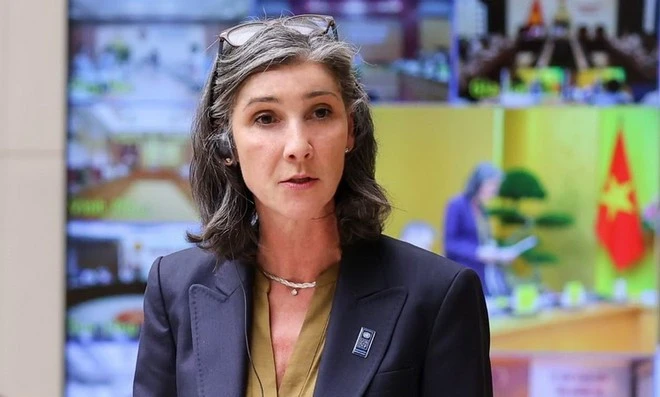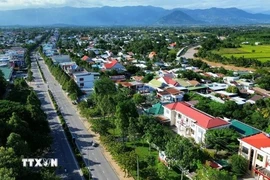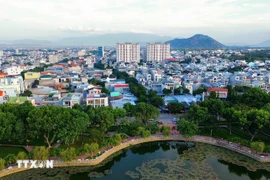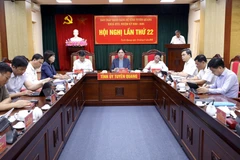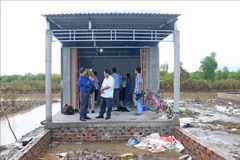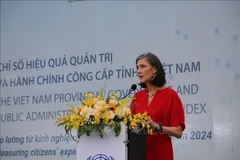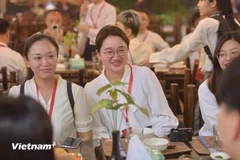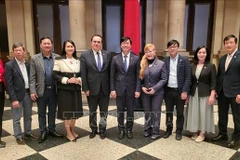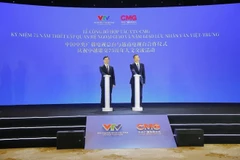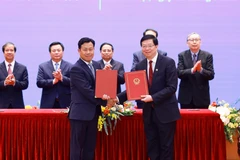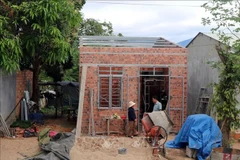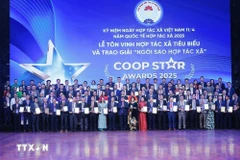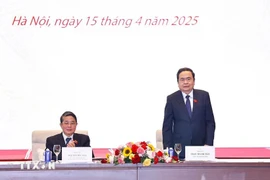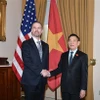Hanoi (VNA) – Ramla Khalidi, UNDP Resident Representative in Vietnam, has affirmed that Vietnam’s national strategies on digital economy, green growth, and social protection reform reflect a deep understanding that transformation must be inclusive by design.
In her recent article, Khalidi said in Vietnam, potential gains from investing in green policies are enormous.
Her writing follows.
As world leaders gather at the P4G Summit in Hanoi this week, we are reminded that the greatest transformations in history have come not only from bold ambition but from shared vision, one rooted in fairness and opportunity for all. For Vietnam, a country rising rapidly on the global development stage, this is a defining moment. The path to net-zero is not only about emissions and energy. It is about people, and about creating a just transition, one that empowers every citizen to thrive in a new era of green and digital prosperity.
Vietnam’s aspirations are as inspiring as they are urgent. By 2045, the country aims to become a high-income economy. Yet, the journey must be more than economic – it must be inclusive and equitable. A just transition ensures that workers are not left behind in coalfields and factories, that small businesses are not shut out of the green and digital economy, and that women, youth, and vulnerable groups are not only protected, but uplifted.
This is not only the right thing to do – it is smart economics. There are many potential gains from investing in green policies. In Vietnam, the potential is enormous: investments in renewable energy and sustainable infrastructure could generate up to half a million new jobs by 2030, especially in sectors such as solar power, energy efficiency, and clean transport.
Beyond job creation, the just transition ensures that new economic growth pathways are enjoyed equitably among different groups of population.
Already, Vietnam is showing remarkable leadership. The Just Energy Transition Partnership, a landmark political declaration, is mobilising 15.5 billion USD in public and private funds to help the country transition from coal while supporting communities and industries affected by the shift. Meanwhile, national strategies on digital economy, green growth, and social protection reform reflect a deep understanding that transformation must be inclusive by design.
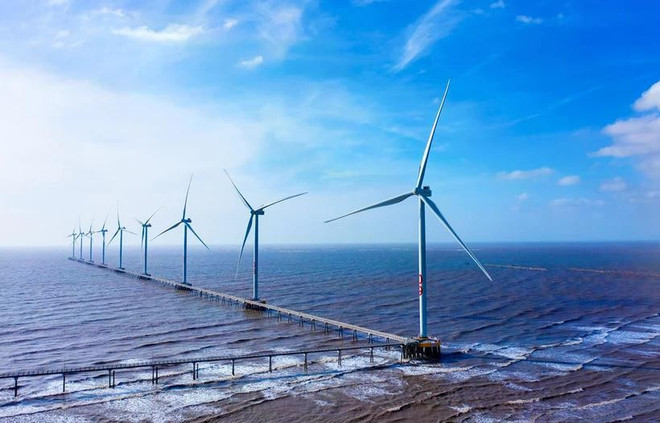
We are proud to walk this journey with Vietnam. As the partnership’s secretariat support agency, we support the government to strengthen coordination with partners, broaden private sector engagement to mobilise sustainable finance, and provide the government with tools to ensure projects are socially inclusive and environmentally sound.
We are supporting the government to localise the Global Accelerator on Jobs and Social Protection for Just Transitions, ensuring that social equity is at the heart of economic transformation. We are investing in digital public infrastructure, promoting climate and energy governance, and helping to expand access to finance, skills, and social protection, especially for the most vulnerable.
And we know that governance matters. Trust in public institutions is the bedrock of inclusive development. Through initiatives like PAPI, the largest governance and public administration survey in Vietnam, we are helping strengthen transparency, accountability, and citizen engagement – critical pillars for a just transition that is owned by the people.
Vietnam has what it takes: a dynamic population, a forward-looking government, and a growing ecosystem of innovators, entrepreneurs, and changemakers. The question before us is not if Vietnam can lead in building a just and sustainable future, but how fast and how far we are willing to go together.
The success of this vision depends on our ability to turn policies into progress – to ensure, for example, that coal workers in Quang Ninh have real opportunities for retraining and reemployment, that women in rural areas can access digital tools and green jobs, and that informal workers have access to social protection and upskilling pathways.
The most powerful way to turn policies into real progress is to make the just transition a force for empowerment, dignity, and opportunity. It means ensuring that innovation thrives in every village, not just urban centres; that climate action delivers dignified livelihoods, not just targets; and that the green and digital economy leaves no-one behind.
The world today faces new challenges and growing economic headwinds. The just transition is not a detour – it IS the catalyst that can turn disruption into opportunity, and ambition into lasting impact. We are committed to walking that path with Vietnam, towards a more just, inclusive, and future-ready nation./.
